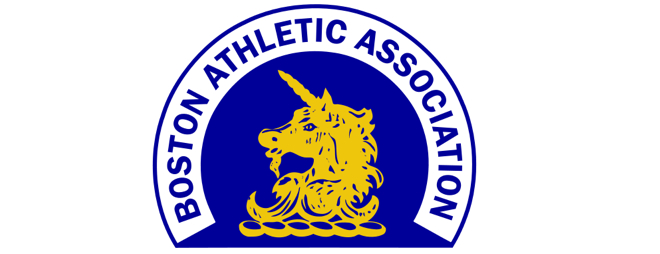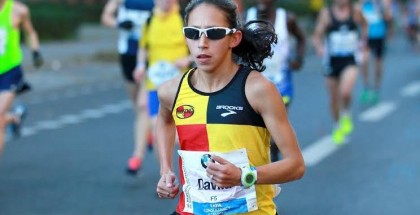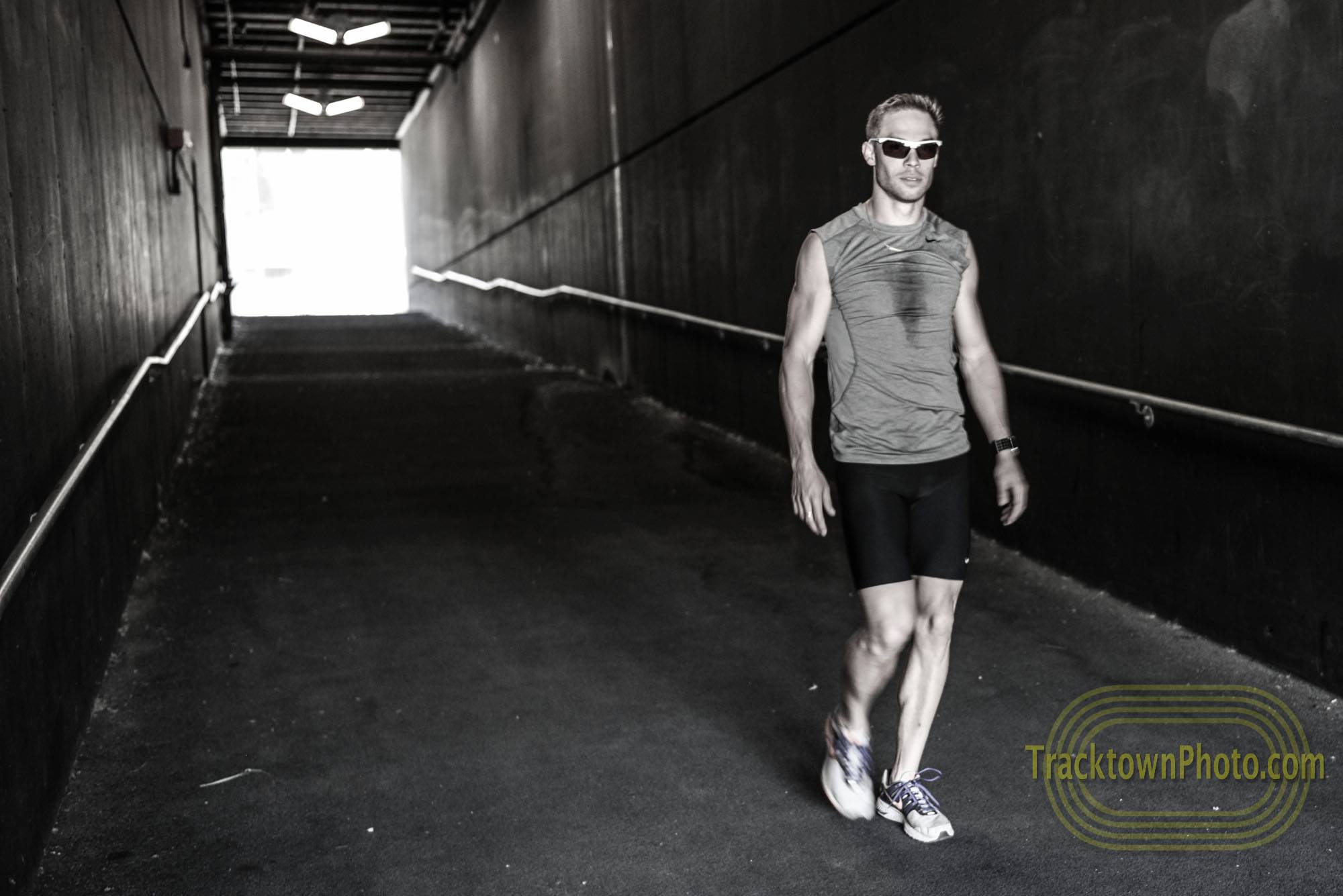Boston Marathon: How does this one stack up?
Some random thoughts, news and views about the Boston Marathon now that I’ve had some time to reflect…
Meb’s Longevity
Meb Keflezighi’s thrilling Boston victory came ten years after he won an Olympic silver medal. This is highly unusual.
I went back and looked at the 100 men who started the 2004 Olympic marathon to see what they’re doing now. The vast majority of them no longer compete, and a few are active in master’s track. Only three have a sub-2:19 marathon to their credit in 2014: Bat-Ochiryn “Ziggy” Ser-Od (Mongolia), who was 4th at the Beppu-Oita Marathon in 2:10:59, Dmytro Baranovskyy (Ukraine), who was 9th at the Warsaw Marathon in 2:12:40, and Meb.
Those guys were an also-ran (75th) and a DNF at the 2004 Olympics, though. How common is it to compete at Meb’s high level over such a long period of time? Not at all common. I found just five other post-WWII men who won a major race or a medal at a major championship ten or more years apart.
Belgium’s Karel Lismont won the European Championships gold medal in 1971 and Euro bronze in 1982. The European Championships still drew the continent’s best in those days, and their best then was much better than their best now. Lismont also won the Berlin Marathon in 1983, although that was a few years before Berlin would have qualified as a “major”.
Australia’s Rob de Castella won the Fukuoka Marathon in 1981 and the Rotterdam Marathon in 1991. Fukuoka was definitely a “major” race in ’81; it had once been the unofficial World Championship and its importance waned as other big-city marathons grew, but winning that race in ’81 was still a very big deal. Rotterdam may or may not have been one of the world’s four or five premiere races in its heyday, but if not it was close.
Australia’s Steve Moneghetti won bronze at the 1986 Commonwealth Games and bronce at the 1997 World Championships. Again, the Commonwealth Games were still a very big deal in ’86–de Castella won that race.
Japan’s Toshihiko Seko won the Fukuoka Marathon in 1978 and the Lake Biwa Marathon in 1988. The first was definitely a “major”, the second would qualify as AAA or AA (if we’re using baseball lingo).
Japan’s Kenji Kimihara won the Tokyo International Marathon in 1963 and the Beppu-Oita Marathon in 1973. What was a “major” marathon in those days is a lot harder to pin down, but even so I’m not sure either of those would qualify.
Women’s race stunningly fast
Shalane Flanagan took the race out from the gun and tried to drop the field. She was not able to do that, and she was the one who was dropped at 18 miles. As quickly as she fell off, and as fast as she ran the first half, I’m very impressed that she was able to hang on and slow down by only three minutes in the second half. She was rewarded with 2:22:02, which makes her the third-fastest American of all time. Only Olympic medalists Deena Kastor and Joan Samuelson have run faster, and even then only on flat courses with even pacing.
I don’t think it’s hyperbole to think that Flanagan could have run under 2:21:00 if she had taken a more measured approach. That’s seriously fast for Boston–only once before would that have failed to win. She apparently didn’t think a measured approach was a winning strategy, and she was right. It just turned out that there wasn’t any winning strategy for her, the competition was too strong. Rita Jeptoo closed at an extremely fast pace off a very hard early pace and there’s no way to beat that.
Would you have believed me two weeks ago if I had told you that the first two women at Boston would run much faster than the London Marathon winner? The London Marathon’s women’s field was hyped as the greatest ever assembled, and with good reason. It included the reigning World and Olympic champions and the 2013 winners of four of the six World Marathon Majors. The London course is flat and fast and had pacemakers to pull the field along. Yet Boston’s top runners went faster.
And here’s another thing to think about: it’s possible that had Flanagan run London, she might have been in contention for the win. Certainly the same motivations would not have been there; Flanagan is a Boston-area native and this race meant even more this year than in others. But that’s both how well-prepared Flanagan was, and how good her competition was on Monday. She has vowed to come back and win someday, and I think she has it in her.
Des Linden ran 2:23:54, the eighth-fastest time in US history (and, strangely, the first-ever American 2:23:anything) and good enough to win nine of the last twelve Boston Marathons. She was tenth.
Does a US winner get media attention?
You bet it does.
Wow. @googlenews shows 26,900 results for "Meb Keflezighi." It is safe to say his was the most-covered marathon victory ever in the USA.
— David Monti (@d9monti) April 22, 2014
On the other hand, a quick scan of the cable sports and news channels just after Meb’s win showed no news besides a crawl. CNN’s usual brainless talking heads were debating a poll that showed just 33% of Bostonians want the death penalty for Dzhokhar Tsarnaev, so there’s that.
How does Meb measure up in US history?
Is Meb Keflezighi now one of the USA’s greatest marathoners ever? Doubtlessly. Is he the greatest? Well, that all depends on what you think is important for “greatness”.
In my book, Frank Shorter is still the greatest. His fastest times were not that much slower than Meb’s, even though they were run more than 40 years ago when everything was much different; energy drinks were in their infancy, as was sports nutrition and sports medicine. And during his peak years, Shorter only ran as fast as he needed to; no one could beat him. He won Olympic gold and silver, but he also won the Fukuoka “world championship” marathon four times in a row, a feat yet unmatched.
It’s also hard for me to consider anyone but Bill Rodgers next. His championship credentials are light–he had a bad race in the 1976 Olympics and got screwed out of a chance to run in the next one–but other than that, all he did was win. He won Boston four times, he won New York four times, and all in all he won 22 marathons over his lifetime. His best times are comparable to Meb’s, again in a different era.
After that, where you place Meb among the all-time greats is based on what you value most: longevity and resiliency, or short-term dominance. Alberto Salazar was the world’s best marathoner for a two-year span and won New York three times and Boston once, but it was a long hard fall after he left the top. Khalid Khannouchi won three majors and broke the world record after earning his US citizenship, but was unable to match that success in championship races. Buddy Edelen set the world record in 1963, and Mark Plaatjes won the 1993 World Championships. Ryan Hall has run a lot of fast times but never won anything bigger than the Olympic Trials. These are the guys in the discussion.
It should also be noted that only eight US men have finished in the top ten in an Olympic marathon since World War II. Only Shorter and Meb have done it twice, both inside the top four, and the only other American men who have finished in the top four are Don Kardong and Kenny Moore (probably better known for their writing than their running).
Spectator turnout
I’m always a bit skeptical of Boston’s claim that 500,000 spectators come out to see the marathon and even more so of this year’s claim of 1,000,000. A million is a much larger number than most people realize. But if it’s accurate, it’s the equivalent of simultaneously filling:
Fenway Park (Red Sox)
TD Gardens (Bruins)
Gillette Stadium (Patriots)
Alumni Stadium (Boston College)
Harvard Stadium
Metlife Stadium (Giants)
Lambeau Field (Packers)
The Rose Bowl
The LA Coliseum
The Big House (Michigan)
The Horseshoe (Ohio State)
Death Valley (Clemson)
Happy Valley (Penn State)
That’s a lot of fans.
Conspiracy?
When I got to work today, one of my colleagues only half-jokingly said “An American winning Boston? This year? It had to be a set-up”.
Let’s Run reported that Ryan Hall organized the US contingent to not pursue Meb and allow him to build up a big lead. “Basically the Africans would have to do all the work to catch them,” said Nick Arciniaga.
My two thoughts:
1) Who else was going to do the work other than the African runners? Rank-and-file American marathoners don’t call the shots in the pack. Remember, it had been thirty-one years since an American had won Boston, and for good reason. The other guys were better. Hall’s efforts did help a little bit, but the fact is that the world’s best tried to hawk down Meb and they couldn’t, and if they waited too long it’s on them and nobody else.
2) Based on the results, US men might want to follow this strategy of patience more often. Besides Meb’s win, Americans finished in 7th, 8th, 11th, 12th, 13th, 16th, 18th, 19th and 20th. Pulling in half of the top 20 against the field assembled was an amazing result. Score it like a cross country race and it’s Kenya 37, USA 39.
Average Joes faster yet
Earlier this year I reported the little-noticed trend that ordinary American marathoners are getting faster. The trend continued this year: 2363 men finished Boston in under 3:00:00, the most in any race anywhere in the world since the 1983 Boston Marathon. Exactly 2100 women finished in under 3:30:00, the most in any race in history.
Boston and cross country
After the race, Meb said “Boston is the perfect course for a good cross-country runner,” noting its hilly nature. I think there’s more to it than just that. Ability in cross country and marathoning seem to go together, whether the course is hilly or flat. Most of the great marathoners of the 70s and 80s were veterans of the World Cross Country Championships (and its forerunner, the International Cross Country Championships). Bill Rodgers and Alberto Salazar, two of the greatest American marathoners ever, are among the few American men who have won individual medals at the cross country Worlds. (Frank Shorter’s best years were before the US participated.) Deena Kastor had great success in both areas too.
If this is correct, then we shouldn’t necessarily look to the best track stars for the next generation of US marathoners. Guys like Ben True and Chris Derrick stand out, as does Neely Spence Gracey for the women.
Fantastic Finishes
I loved the old “Alcoa’s Fantastic Finishes” during NFL two-minute warnings. Do you remember those?
Anyway, how does Meb’s courageous fight to the finish compare in the pantheon of all-time great marathon endings? Here are my picks (or at least the ones I could find on Youtube), in no particular order…
Sammy Wanjiru’s “Rope-a-dope”, Chicago 2010
The Duel in the Sun, Boston 1982
Rod Dixon hawks down Geoff Smith in Central Park, New York 1983
Desi Davila comes up just short, Boston 2011
German Silva makes a wrong turn, New York 1994
A three-man finish, 1996 Olympic men’s marathon (it gets really good around 35:00)
And, of course, the marathon for incontinence, 27th Silly Olympiad
-
I’d like to hear more about this Bat-Ochiryn “Ziggy” Ser-Od fellow. Or, more specifically, the etymology of his names.



















Comments